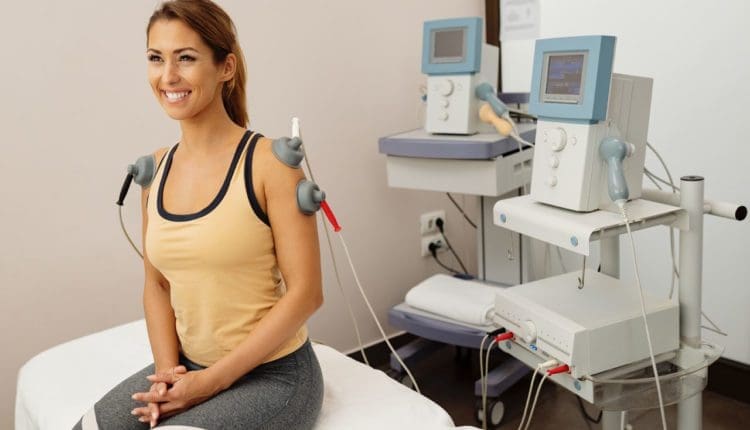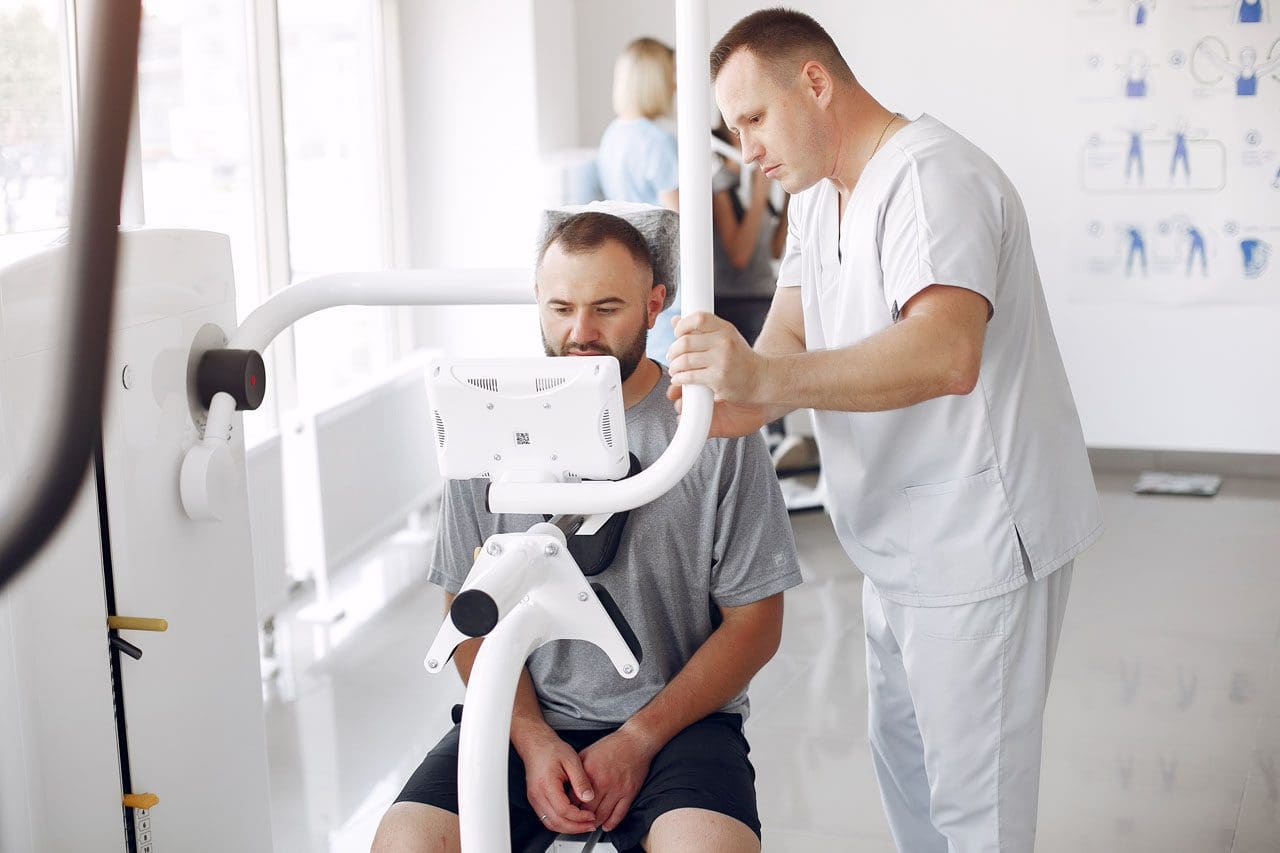MVA Collisions and Challenges Related to Pain and Stiffness
Understanding How Motor Vehicle Accidents Impact Mobility and Flexibility

Motor vehicle accidents (MVAs) can significantly affect a person’s ability to move freely and perform daily tasks due to injuries that impair mobility and flexibility. These injuries, ranging from whiplash to spinal damage, often cause pain, stiffness, and reduced range of motion, impacting quality of life. Below, we explore how MVAs cause these issues, supported by clinical insights, particularly from Dr. Alexander Jimenez, a renowned chiropractor and nurse practitioner in El Paso, Texas, who specializes in treating such injuries.
Key Points
- Common Injuries: MVAs often result in whiplash, spinal injuries, joint damage, and soft tissue injuries, which can lead to mobility and flexibility issues.
- Mechanisms: Sudden forces, such as deceleration or impact, cause these injuries, affecting muscles, ligaments, and joints.
- Long-term effects: Untreated injuries may lead to chronic pain, reduced range of motion, or conditions such as osteoarthritis.
- Treatment Options Include physical therapy, chiropractic care, and early intervention, which can help restore mobility and prevent long-term complications.
- Expert Care: Dr. Alexander Jimenez utilizes advanced diagnostics and holistic treatments to address MVA injuries, providing legal documentation to support personal injury cases.
- Complexity: The severity and recovery vary by individual, and psychological factors like PTSD may indirectly affect physical recovery.
How MVAs Cause Mobility and Flexibility Issues
MVAs generate sudden, powerful forces that can damage the body’s musculoskeletal system. For example, whiplash occurs when the neck is rapidly jerked, straining muscles and ligaments, leading to stiffness and pain that restricts head movement (Catalyst Physical Therapy). Spinal injuries, such as herniated discs, can compress nerves, causing pain or weakness that limits walking or bending (Cox Law Firm). Joint injuries, such as those to the knees or shoulders, can lead to conditions like osteoarthritis, which gradually reduces joint function over time. (Kitchel Law). These injuries disrupt normal movement, making daily activities challenging.
Treatment and Recovery
Research suggests that early intervention with physical therapy or chiropractic care can significantly improve outcomes. Physical therapy uses exercises and manual techniques to restore strength and flexibility. At the same time, chiropractic adjustments, as noted in a study from the Journal of Manipulative and Physiological Therapeutics, can realign the spine to improve mobility (Wall Family Chiropractic). Dr. Jimenez’s approach, combining advanced imaging like MRI with holistic treatments, helps tailor recovery plans to individual needs, addressing both physical and legal aspects of recovery. (Dr. Alex Jimenez).
Dr. Jimenez’s Expertise
El Paso recognizes Dr. Jimenez for his comprehensive care for MVA victims. His use of MRI and functional medicine assessments ensures accurate diagnosis, while his documentation supports personal injury claims, balancing medical and legal needs. His clinic’s focus on non-invasive treatments, such as acupuncture and sports medicine, promotes natural healing and long-term mobility.
Comprehensive Guide to Motor Vehicle Accidents and Their Impact on Mobility and Flexibility
Motor vehicle accidents (MVAs) are a leading cause of injuries worldwide, with significant consequences for mobility and flexibility. In 2019, the National Highway Traffic Safety Administration reported over 6 million police-reported crashes in the U.S., many resulting in injuries that impair movement and daily functioning (NHTSA). These injuries, such as whiplash, spinal damage, and joint injuries, can lead to pain, stiffness, and reduced range of motion, profoundly affecting quality of life. This article examines how Motor Vehicle Accidents (MVAs) lead to these issues, their long-term effects, available treatment options, and the expertise of Dr. Alexander Jimenez in El Paso, Texas, who specializes in treating MVA-related injuries and supporting personal injury cases.
Common Injuries from Motor Vehicle Accidents
MVAs can cause a range of injuries that directly impact mobility and flexibility. Below are the most common types, their symptoms, and their effects on movement.
Whiplash and Neck Injuries
Whiplash is a frequent injury in rear-end collisions, affecting nearly 2 million Americans annually (MS PT). A sudden jerk of the head forward and backward strains the neck muscles and ligaments. Symptoms include:
- Neck pain and stiffness
- Headaches, often at the skull base
- Dizziness and blurred vision
- Reduced range of motion
These symptoms can make it difficult to turn the head, drive, or perform tasks requiring neck movement. If untreated, whiplash may lead to chronic pain, further limiting mobility (Catalyst Physical Therapy).
Spinal Injuries
The spine is vulnerable to MVA forces, leading to injuries like herniated discs and vertebral fractures. A herniated disc occurs when the disc’s inner material protrudes, potentially compressing nerves and causing pain, numbness, or weakness in the limbs (Cox Law Firm). Vertebral fractures can destabilize the spine, leading to chronic pain and mobility loss, sometimes requiring surgical intervention. These injuries can hinder the ability to walk, sit, or stand for prolonged periods.
Joint Damage
Joints such as the knees, shoulders, and hips are susceptible to damage from direct impact or bracing during a collision. Knee injuries, such as ligament tears or fractures, can cause instability and make walking difficult. Shoulder injuries, such as rotator cuff tears, limit arm movement, which can affect tasks like lifting or reaching. Hip injuries can lead to osteoarthritis, resulting in pain and stiffness that impair mobility. (Kitchel Law).
Soft Tissue Injuries
MVAs can strain or tear muscles, tendons, and ligaments, resulting in pain, swelling, and restricted mobility. For example, a torn rotator cuff can restrict shoulder mobility, while a sprained ankle may affect walking (Wellness for Warriors). These injuries often require rest and rehabilitation to restore function.
Head Injuries and Concussions
Head injuries, including concussions, can result from striking the vehicle’s interior or rapid head movement. Concussions can cause symptoms such as dizziness, balance issues, and cognitive impairments, which can impact coordination and mobility. Severe traumatic brain injuries (TBIs) may lead to long-term physical limitations. (Catalyst Physical Therapy).
| Injury Type | Symptoms | Impact on Mobility/Flexibility |
|---|---|---|
| Whiplash | Neck pain, stiffness, headaches | Reduced neck rotation, difficulty driving |
| Herniated Disc | Pain, numbness, weakness | Limited walking, bending, or lifting |
| Joint Damage | Pain, swelling, instability | Impaired walking, reaching, or lifting |
| Soft Tissue | Pain, swelling, and limited movement | Restricted joint function, difficulty with tasks |
| Concussion | Dizziness, balance issues | Coordination problems, unsteady gait |
Mechanisms of Injury
The forces in MVAs—such as sudden deceleration, impact, or twisting—cause specific injuries that impair mobility and flexibility.
- Whiplash Mechanism: In a rear-end collision, the vehicle accelerates forward, but the head lags, causing neck hyperextension and subsequent flexion. The injury strains soft tissues, leading to stiffness and reduced range of motion. (MS PT).
- Spinal Injuries: Compression from head-on collisions can fracture vertebrae, while side impacts may cause rotational injuries, leading to disc herniations or nerve compression.
- Joint Damage: Direct impacts (e.g., knee hitting the dashboard) or bracing can tear ligaments or dislocate joints, limiting movement.
- Soft Tissue Injuries: Sudden jolts, stretches, or tears of muscles and ligaments, causing pain and restricted motion.
- Head Injuries: Rapid head movement or impact can cause concussions, affecting balance and coordination.
Understanding these mechanisms helps clinicians diagnose and treat injuries effectively, tailoring interventions to the specific dynamics of the accident.
Long-Term Effects
Untreated MVA injuries can lead to chronic conditions that persistently affect mobility and flexibility.
- Chronic Pain: Conditions like chronic whiplash syndrome or post-traumatic arthritis cause ongoing pain, limiting physical activity (Kitchel Law).
- Reduced Range of Motion: Scar tissue, joint stiffness, or muscle weakness can restrict joint movement, affecting tasks like reaching or bending.
- Osteoarthritis: Joint injuries accelerate cartilage wear, leading to pain and stiffness, particularly in weight-bearing joints.
- Neurological Deficits: Nerve compression from spinal injuries can cause numbness or weakness, impacting mobility.
- Psychological Impacts: PTSD, affecting over 30% of crash survivors, may reduce physical activity due to emotional distress, indirectly affecting mobility (Michigan Auto Law).
Early treatment is crucial for mitigating these effects and restoring function.
Treatment Options
Effective treatment can restore mobility and flexibility, preventing long-term complications. Common approaches include:
Physical Therapy
Physical therapy is essential for MVA recovery, using techniques like:
- Manual Therapy: Mobilizes joints and soft tissues to improve range of motion.
- Therapeutic exercises strengthen muscles and enhance flexibility.
- Modalities: Heat, cold, ultrasound, or electrical stimulation reduce pain and inflammation.
Early intervention can prevent chronic issues and restore function (Sage Hill Physiotherapy).
Chiropractic Care
Chiropractic adjustments realign the spine, relieve nerve pressure, and improve mobility. A study in the Journal of Manipulative and Physiological Therapeutics supports their effectiveness (Wall Family Chiropractic). Soft tissue therapy and rehabilitation exercises complement adjustments.
Surgery
Severe injuries, like fractures or significant disc herniations, may require surgery, followed by rehabilitation to regain mobility.
Rehabilitation Programs
Multidisciplinary programs combine physical therapy, occupational therapy, and pain management to address all aspects of recovery, enhancing mobility and daily functioning.
| Treatment | Techniques | Benefits |
|---|---|---|
| Physical Therapy | Manual therapy, exercises, and modalities | Restores strength and flexibility and reduces pain |
| Chiropractic Care | Spinal adjustments, soft tissue therapy | Improves spinal alignment and mobility |
| Surgery | Discectomy, fracture repair | Addresses severe structural damage |
| Rehabilitation | Multidisciplinary approach | Comprehensive recovery, improved function |
Dr. Alexander Jimenez’s Approach
Dr. Alexander Jimenez, DC, APRN, FNP-BC, with over 30 years of experience, leads El Paso’s Premier Wellness & Injury Care Clinic, specializing in the treatment of motor vehicle accident (MVA) injuries. (Dr. Alex Jimenez). His approach integrates:
- Advanced Diagnostics: MRI and functional medicine assessments pinpoint the causes of injuries, ensuring accurate treatment plans. (Dr. Alex Jimenez).
- Holistic Treatments: Chiropractic care, acupuncture, and sports medicine promote natural healing and mobility restoration.
- Legal Documentation: Detailed medical reports support personal injury claims, striking a balance between medical and legal needs.
His clinic’s focus on non-invasive care and patient education, through resources like blogs and testimonials, enhances recovery outcomes.
Personal Injury Cases in El Paso
In El Paso, MVAs are a common cause of personal injury claims, with victims facing medical costs, lost wages, and pain. Dr. Jimenez’s clinic supports these cases by providing expert care and documentation for legal proceedings. His team, which includes chiropractors and nurse practitioners, offers tailored rehabilitation plans that are accessible via online forms and appointments. (Personal Injury Doctor Group).
Influence on Musculoskeletal Joint Pain
MVA injuries often contribute to musculoskeletal joint pain, which can become chronic if untreated. Whiplash and joint injuries can lead to persistent pain and stiffness, while spinal injuries may cause nerve-related pain, such as sciatica. Over time, joint damage can accelerate osteoarthritis, leading to increased pain and reduced mobility. Dr. Jimenez’s use of advanced imaging, such as MRI, helps correlate these injuries with joint pain, guiding targeted treatments to prevent further progression.
Conclusion
MVAs can profoundly impact mobility and flexibility through injuries like whiplash, spinal damage, and joint trauma. Early intervention with physical therapy, chiropractic care, or surgery can mitigate long-term effects like chronic pain and osteoarthritis. Dr. Jimenez’s expertise in El Paso provides a model for comprehensive care, combining advanced diagnostics with holistic treatments and legal support. If you’ve been in an MVA, seek immediate medical attention to restore your mobility and quality of life. Contact Dr. Jimenez’s clinic at 915-850-0900 or visit Dr. Alex Jimenez for personalized care.
Key Citations
- Motor Vehicle Accident Injuries – Catalyst Physical Therapy
- How to Adapt to Mobility Loss – Cox Law Firm
- Long-Term Effects of Car Accident Injuries – Kitchel Law
- Motor Vehicle Accident Injuries – MS PT
- Traffic Safety Facts 2019 – NHTSA
- Motor Vehicle Accident Recovery – Sage Hill Physiotherapy
- Restoring Mobility After a Car Crash – Wall Family Chiropractic
- Motor Vehicle Accidents – Wellness for Warriors
- Personal Injury Doctor – Dr. Alex Jimenez
- MRI for Herniated Disc Diagnosis – Dr. Alex Jimenez
- El Paso’s Premier Wellness & Injury Care Clinic
- Trauma After Car Accident – Michigan Auto Law
Post Disclaimers
General Disclaimer, Licenses and Board Certifications *
Professional Scope of Practice *
The information herein on "MVA Collisions and Challenges Related to Pain and Stiffness" is not intended to replace a one-on-one relationship with a qualified health care professional or licensed physician and is not medical advice. We encourage you to make healthcare decisions based on your research and partnership with a qualified healthcare professional.
Blog Information & Scope Discussions
Welcome to El Paso's Premier Wellness and Injury Care Clinic & Wellness Blog, where Dr. Alex Jimenez, DC, FNP-C, a Multi-State board-certified Family Practice Nurse Practitioner (FNP-BC) and Chiropractor (DC), presents insights on how our multidisciplinary team is dedicated to holistic healing and personalized care. Our practice aligns with evidence-based treatment protocols inspired by integrative medicine principles, similar to those on this site and on our family practice-based chiromed.com site, focusing on naturally restoring health for patients of all ages.
Our areas of multidisciplinary practice include Wellness & Nutrition, Chronic Pain, Personal Injury, Auto Accident Care, Work Injuries, Back Injury, Low Back Pain, Neck Pain, Migraine Headaches, Sports Injuries, Severe Sciatica, Scoliosis, Complex Herniated Discs, Fibromyalgia, Chronic Pain, Complex Injuries, Stress Management, Functional Medicine Treatments, and in-scope care protocols.
Our information scope is multidisciplinary, focusing on musculoskeletal and physical medicine, wellness, contributing etiological viscerosomatic disturbances within clinical presentations, associated somato-visceral reflex clinical dynamics, subluxation complexes, sensitive health issues, and functional medicine articles, topics, and discussions.
We provide and present clinical collaboration with specialists from various disciplines. Each specialist is governed by their professional scope of practice and their jurisdiction of licensure. We use functional health & wellness protocols to treat and support care for musculoskeletal injuries or disorders.
Our videos, posts, topics, and insights address clinical matters and issues that are directly or indirectly related to our clinical scope of practice.
Our office has made a reasonable effort to provide supportive citations and has identified relevant research studies that support our posts. We provide copies of supporting research studies upon request to regulatory boards and the public.
We understand that we cover matters that require an additional explanation of how they may assist in a particular care plan or treatment protocol; therefore, to discuss the subject matter above further, please feel free to ask Dr. Alex Jimenez, DC, APRN, FNP-BC, or contact us at 915-850-0900.
We are here to help you and your family.
Blessings
Dr. Alex Jimenez DC, MSACP, APRN, FNP-BC*, CCST, IFMCP, CFMP, ATN
email: [email protected]
Multidisciplinary Licensing & Board Certifications:
Licensed as a Doctor of Chiropractic (DC) in Texas & New Mexico*
Texas DC License #: TX5807, Verified: TX5807
New Mexico DC License #: NM-DC2182, Verified: NM-DC2182
Multi-State Advanced Practice Registered Nurse (APRN*) in Texas & Multi-States
Multi-state Compact APRN License by Endorsement (42 States)
Texas APRN License #: 1191402, Verified: 1191402 *
Florida APRN License #: 11043890, Verified: APRN11043890 *
Colorado License #: C-APN.0105610-C-NP, Verified: C-APN.0105610-C-NP
New York License #: N25929, Verified N25929
License Verification Link: Nursys License Verifier
* Prescriptive Authority Authorized
ANCC FNP-BC: Board Certified Nurse Practitioner*
Compact Status: Multi-State License: Authorized to Practice in 40 States*
Graduate with Honors: ICHS: MSN-FNP (Family Nurse Practitioner Program)
Degree Granted. Master's in Family Practice MSN Diploma (Cum Laude)
Dr. Alex Jimenez, DC, APRN, FNP-BC*, CFMP, IFMCP, ATN, CCST
My Digital Business Card
Licenses and Board Certifications:
DC: Doctor of Chiropractic
APRNP: Advanced Practice Registered Nurse
FNP-BC: Family Practice Specialization (Multi-State Board Certified)
RN: Registered Nurse (Multi-State Compact License)
CFMP: Certified Functional Medicine Provider
MSN-FNP: Master of Science in Family Practice Medicine
MSACP: Master of Science in Advanced Clinical Practice
IFMCP: Institute of Functional Medicine
CCST: Certified Chiropractic Spinal Trauma
ATN: Advanced Translational Neutrogenomics
Memberships & Associations:
TCA: Texas Chiropractic Association: Member ID: 104311
AANP: American Association of Nurse Practitioners: Member ID: 2198960
ANA: American Nurse Association: Member ID: 06458222 (District TX01)
TNA: Texas Nurse Association: Member ID: 06458222
NPI: 1205907805
| Primary Taxonomy | Selected Taxonomy | State | License Number |
|---|---|---|---|
| No | 111N00000X - Chiropractor | NM | DC2182 |
| Yes | 111N00000X - Chiropractor | TX | DC5807 |
| Yes | 363LF0000X - Nurse Practitioner - Family | TX | 1191402 |
| Yes | 363LF0000X - Nurse Practitioner - Family | FL | 11043890 |
| Yes | 363LF0000X - Nurse Practitioner - Family | CO | C-APN.0105610-C-NP |
| Yes | 363LF0000X - Nurse Practitioner - Family | NY | N25929 |
Dr. Alex Jimenez, DC, APRN, FNP-BC*, CFMP, IFMCP, ATN, CCST
My Digital Business Card








Comments are closed.